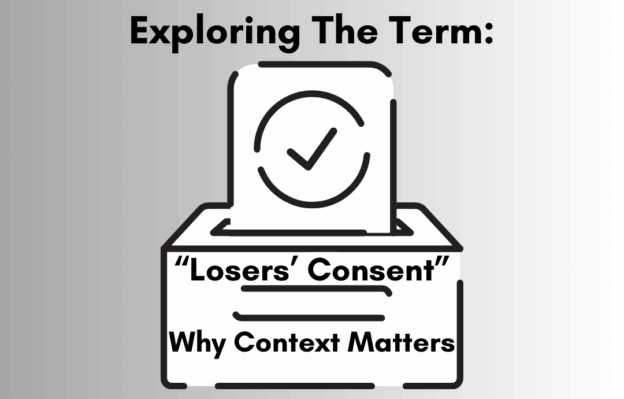It could be easy to take the term “Losers’ Consent” as a insult. It certainly brackets “Losers”, but is this enough to be defamatory? Or is it simply a technical term in Political Science? And what does it actually mean anyway?
The term “losers’ consent” in a political context is not inherently rude or defamatory, but rather a technical term used in political science. It refers to the willingness of the losing side in a democratic process, like an election or referendum, to accept and abide by the outcome, even if it is not the result they hoped for. This concept is crucial for the functioning of a stable, democratic system, as it underscores the principle of respecting democratic processes and outcomes.
However, the term’s perception can vary:
- Neutral Usage: In academic and analytical contexts, “losers’ consent” is a neutral term describing an essential aspect of democratic resilience and stability.
- Perception of Disrespect: In public discourse, especially among those who are on the ‘losing’ side of a decision, the term might be perceived as dismissive or derogatory. This is particularly so if it’s used without sensitivity to the concerns and disappointments of those who did not see their preferred outcome realized.
- Risk of Political Point-Scoring: If used in a partisan or triumphalist manner, the term can indeed come across as an attempt at political point-scoring. It’s important for political leaders and commentators to use such terms judiciously, respecting the legitimate emotions and viewpoints of all parties involved in a democratic decision.
In summary, while the term itself is a standard part of political science lexicon, its use in public and political discussions should be approached with consideration for its potential impact on different audiences. It’s important to ensure that its use contributes to constructive dialogue rather than exacerbating divisions.
